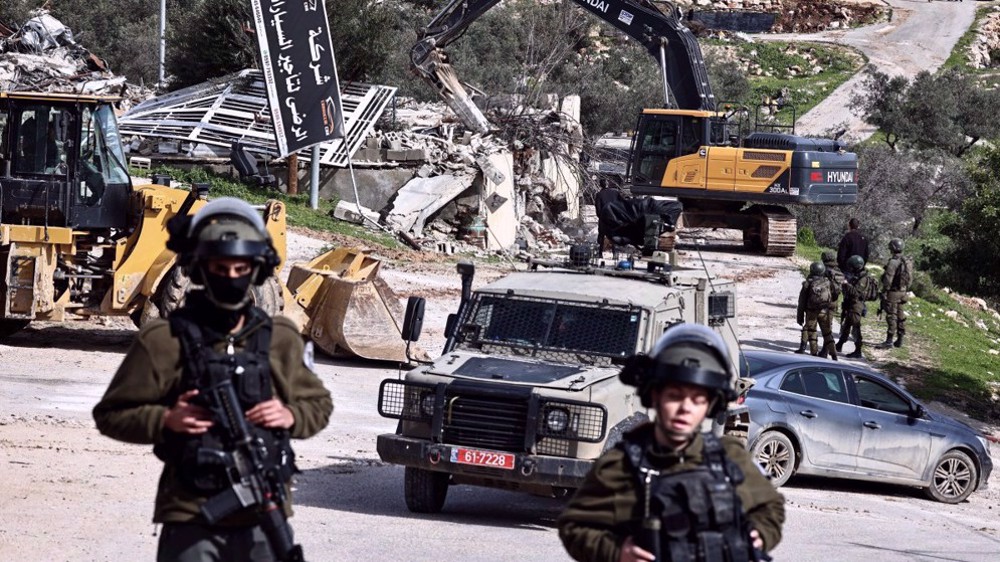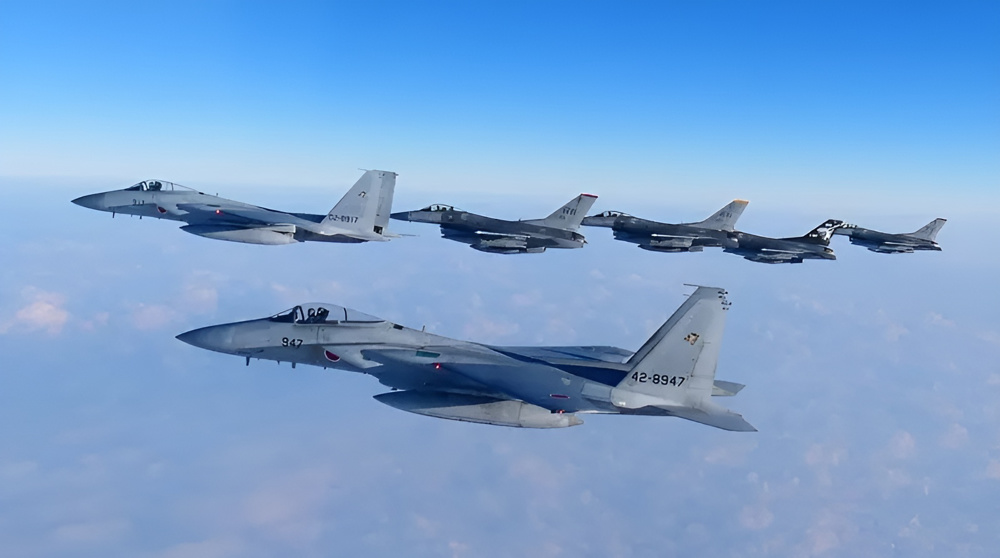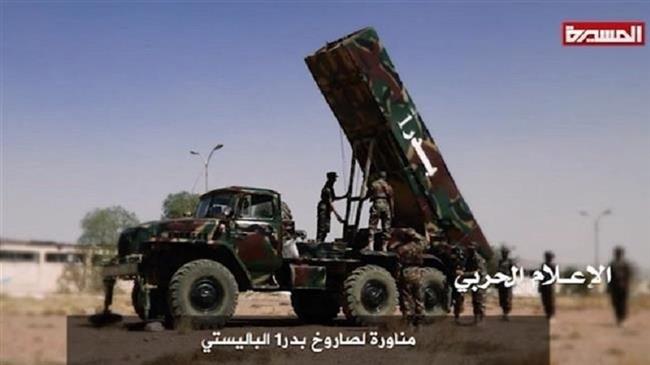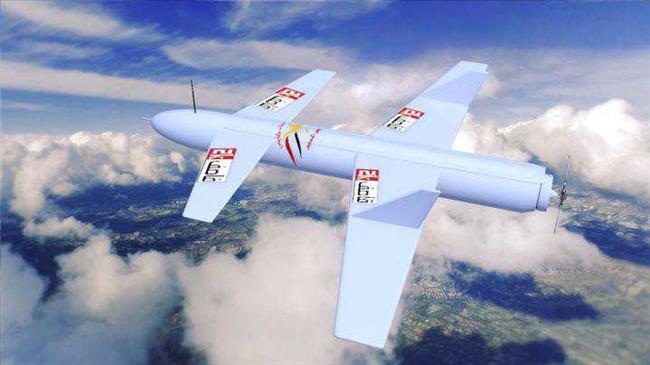Yemeni drone attacks halve Saudi oil, gas production; US pins blame on Iran
Riyadh has admitted that Yemen’s drone strikes on Saudi Arabia’s key oil facilities have shut down about 50 percent of the kingdom’s crude and gas production, with the United States rushing to point the finger at Iran for the raids without providing any evidence.
In a statement carried by the Saudi Press Agency (SPA) on Sunday, Energy Minister Prince Abdulaziz bin Salman acknowledged that the attacks on Aramco refineries in Abqaiq and Khurais, east of Saudi Arabia, had cut the state oil giant’s crude oil supply by around 5.7 million barrels per day, or about 50 percent of its output.
He added, however, that parts of the reduction would be compensated for through drawing from Aramco’s oil stocks.
The minister noted that the attacks had also led to a halt in gas production that will reduce the supply of ethane and natural gas liquids by 50 percent.
In August, Saudi Arabia produced 9.85 million barrels per day, according to the figures from the US Energy Information Administration.
Yemen used 10 drones for Saturday’s operation, which was one of their largest retaliatory attacks ever inside the kingdom.
Yemen’s armed forces spokesman Brigadier General Yahya Sare’e has even warned that operations will “expand” and be “more painful” as long as Saudi Arabia continues its military aggression.
Saudi stocks tumble after Yemen raids
In the aftermath of the successful Yemeni operation, Saudi shares dropped three percent at the start of trading Sunday, the first session after the drone attacks.
The Arab world’s largest capital market shed some 200 points in the first few minutes after the opening bell, before regaining some of the losses.
The key energy sector plunged 4.7 percent, while the telecom and banking sectors each slid three percent.
Pompeo blames Iran
Meanwhile, US Secretary of State Mike Pompeo took to Twitter to put the blame for Saturday’s operation on Iran, claiming, “Tehran is behind nearly 100 attacks on Saudi Arabia” and that “there is no evidence the attacks came from Yemen.”
“The United States will work with our partners and allies to ensure that energy markets remain well supplied and Iran is held accountable for its aggression,” he added.
Pompeo’s tweet was, however, met with a wave of criticism on Twitter.
Replying to Pompeo, US Democratic senator Chris Murphy tweeted, “This is such irresponsible simplification and it’s how we get into dumb wars of choice.”
This is such irresponsible simplification and it’s how we get into dumb wars of choice
— Chris Murphy (@ChrisMurphyCT) September 14, 2019
The Saudis and Houthis are at war. The Saudis attack the Houthis and the Houthis attack back. Iran is backing the Houthis and has been a bad actor, but it’s just not as simple as Houthis=Iran. https://t.co/BFiO1AQe2B
Ben Rhodes, former deputy national security adviser under ex-president Barack Obama, called Pompeo's remarks “incredibly dumb, dishonest and dangerous.”
The Houthis are not the same as Iran and the Saudis are fighting a war against them in Yemen. This is an incredibly dumb, dishonest and dangerous thing to say. https://t.co/Ij5haLdzQr
— Ben Rhodes (@brhodes) September 14, 2019
A variety of media reports and analysts have attributed the successful drone operation to Yemen’s growing defense capabilities and Saudi Arabia’s vulnerable defenses.
The Yemeni army has said the raids were carried out on the back of an intelligence operation and in cooperation with “certain honorable and freedom-seeking individuals within Saudi Arabia.”
Trump voices support for Saudis
Following the drone strikes, US President Donald Trump, a stalwart supporter of the Riyadh-led war on Yemen, spoke on the phone with Saudi Crown Prince Mohammed bin Salman, who has been leading the military campaign in his capacity as the Saudi defense chief.
Trump offered his administration’s support for what he called “Saudi Arabia’s self defense,” saying the attacks on Saudi oil facilities had a negative impact on the US and global economies.
Bin Salman, for his part, said he was “willing and able to confront and deal with” what he described as a “terrorist aggression.”
Yemeni fighters regularly target positions inside Saudi Arabia in retaliation for the Saudi-led offensive, which began in March 2015 in an attempt to reinstall the country's Riyadh-allied former regime and crush the Houthis.
The US-backed military aggression, coupled with a naval blockade, has killed tens of thousands of Yemenis, destroyed the country’s infrastructure and led to a massive humanitarian crisis.
‘Saudis underestimated Yemen’
Speaking to Press TV’s The Debate program about the developments, a historian and journalist from Belgium said the Saudis actually underestimated the Yemenis and did not take into account the nation’s “popular will” to respond to the kingdom’s indiscriminate bombing campaign.
“I think that one of the major ... mistakes that the Saudis made is the age-old problem of underestimating the enemy. The Saudis basically went to this conflict four and a half years ago with the mentality of being ... home by Christmas,” Brecht Jonkers Michael said.
The Saudis, he added, only compared the quality and quantity of their weaponry — which is the biggest as well as the most expensive and technologically advanced in the Arab world to that of Yemen — the poorest nation in the world.
“Of course, they (the Saudis) did not take into account all these things like the popular will, popular support, the tenacity of the Yemeni people and how these people under siege will react to a massive attack of this magnitude, which has absolutely no regard for civilian lives,” Jonkers said
“What happened instead of quick surrender is that the Yemeni people .... have taken up arms and have rallied behind the national Salvation Government in Sana’a ... and ... Ansarullah,” he noted.
The journalist also analyzed the Yemeni operation as “massively successful” as domestically-produced drones penetrated into Saudi Arabia’s defenses and traveled hundreds of miles in order to hit the biggest oil refinery in the world.
Such attacks, he said, are shattering the morale among Saudi soldiers.
Tehran says US has not sought zero enrichment, warns war hawks pushing for ‘catastrophic war’
Iran ‘serious’ on achieving a ‘fair’ deal with US, Araghchi tells Lavrov
Trump administration gives ICE broader powers to detain legal refugees
Hamas slams Israeli restrictions on access to al-Aqsa mosque during Ramadan
Iran’s Dena destroyer docks in Indian port as Tehran, New Delhi discuss maritime security
Trump plans to establish 'massive' military base in southern Gaza: Report
NYT questions Trump’s justification for threatening war on Iran
VIDEO | Press TV's news headlines















 This makes it easy to access the Press TV website
This makes it easy to access the Press TV website